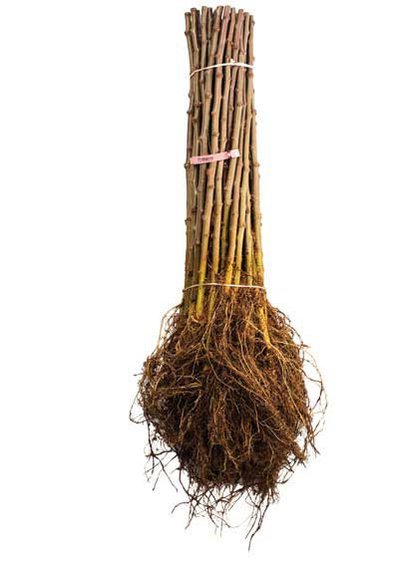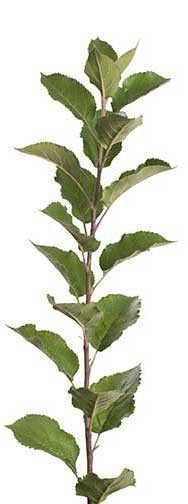 Image 1 of 3
Image 1 of 3

 Image 2 of 3
Image 2 of 3

 Image 3 of 3
Image 3 of 3




MARK
MARK, formally named MAC 9, was bred at Michigan State University at East Lansing, Michigan by Dr. Robert F. Carlson and has been under test in Michigan for 20 years.
Pricing | Inventory
-
MARK, formally named MAC 9, was bred at Michigan State University at East Lansing, Michigan by Dr. Robert F. Carlson and has been under test in Michigan for 20 years.
M-9 was the mother parent, and the pollen parent is unknown, since the seed was collected from open pollinated trees.
A virus indexed clone was introduced through IR2 in Prosser, Washington in 1981. TRECO® and Microplant Nurseries, Inc. was granted the right to propagate MARK in vitro to expand for future commercial production.
-
MARK produces trees that are approximately the size between EMLA 27 and EMLA 9. It shows good signs of being precocious and self-spreading, similar to that of M-9.
-
So far, MARK shows some resistance to fire blight (Erwinia amylovora), in orchard conditions, although in lab conditions it is similar to M-9 and is tolerant to cold temperatures.
-
MARK roots very well in the stoolbeds, and it is compatible with a wide range of scion varieties. It also shows resistance to suckering, showing no crown sucker development with cultivars tested.
-
Plantings have been set out through the NC 140-National Rootstock Research Trials in 32 different locations throughout the United States and Canada, as well as various research plots in Europe. MARK is one of the first in the dwarfing apple rootstocks which is strongly anchored and with proper orchard procedures may be free standing, however it is our recommendation to support this tree. MARK possesses several desirable orchard qualities: Early flowering with good fruit set, heavy production and excellent fruit color resulting from open tree structure.
-
MARK is drought-sensitive. We suggest you contact Michigan State University for information on planting in your area.
